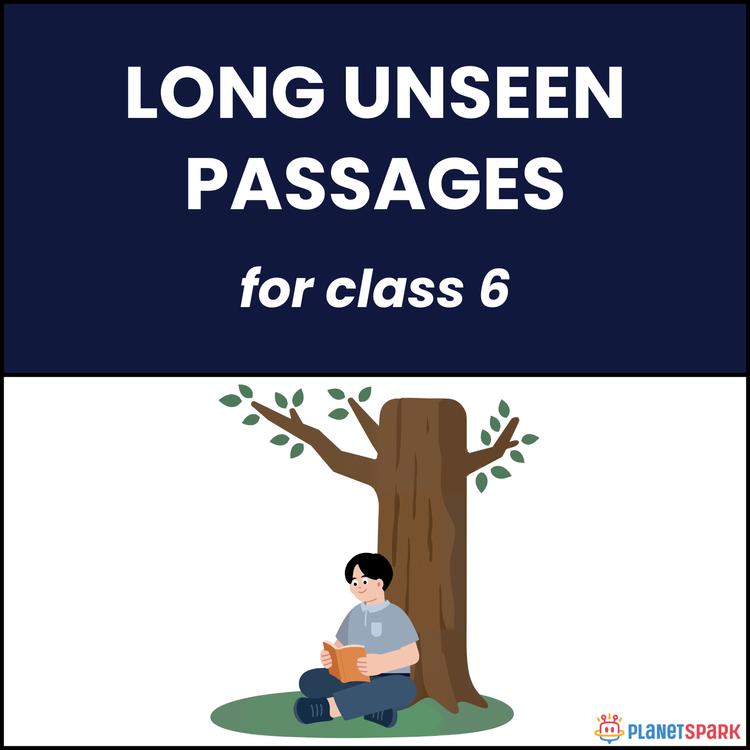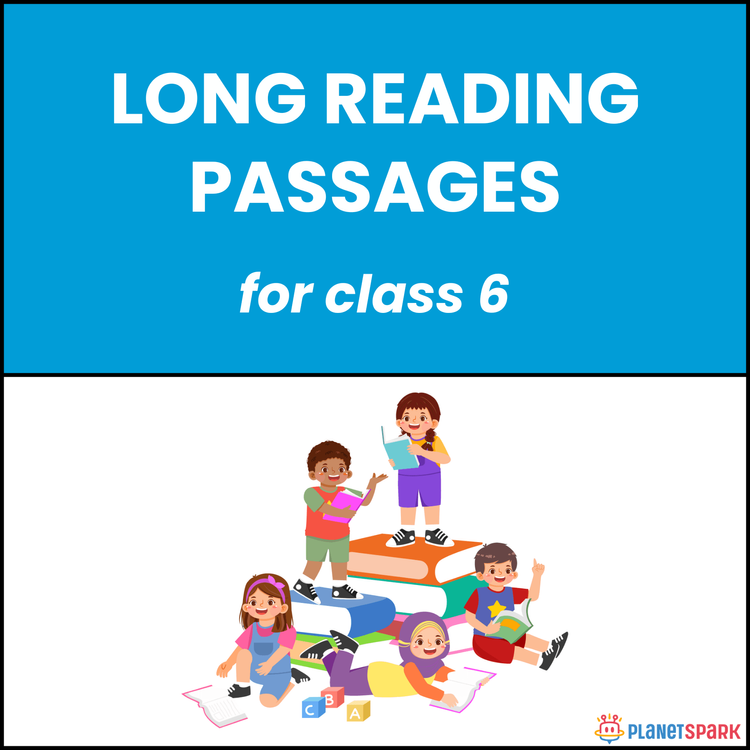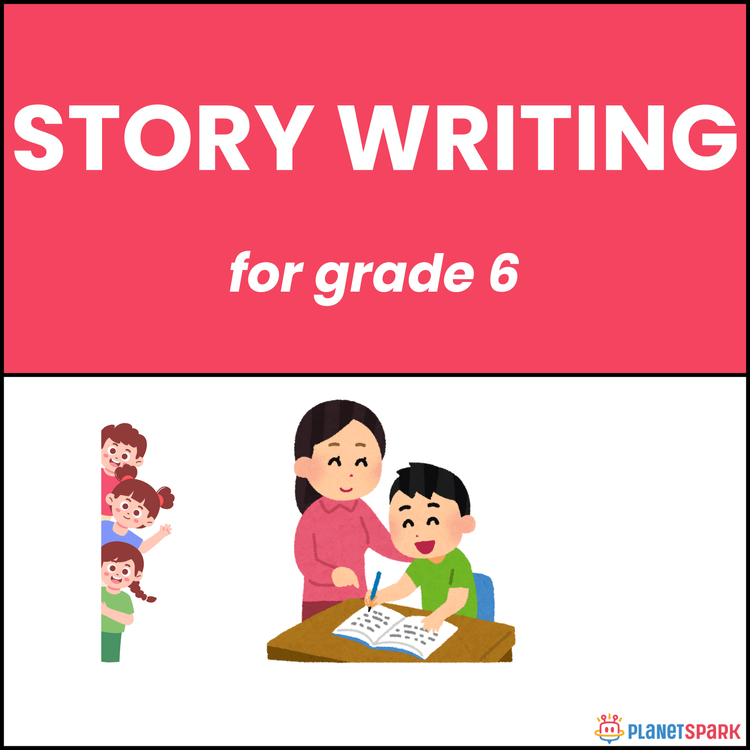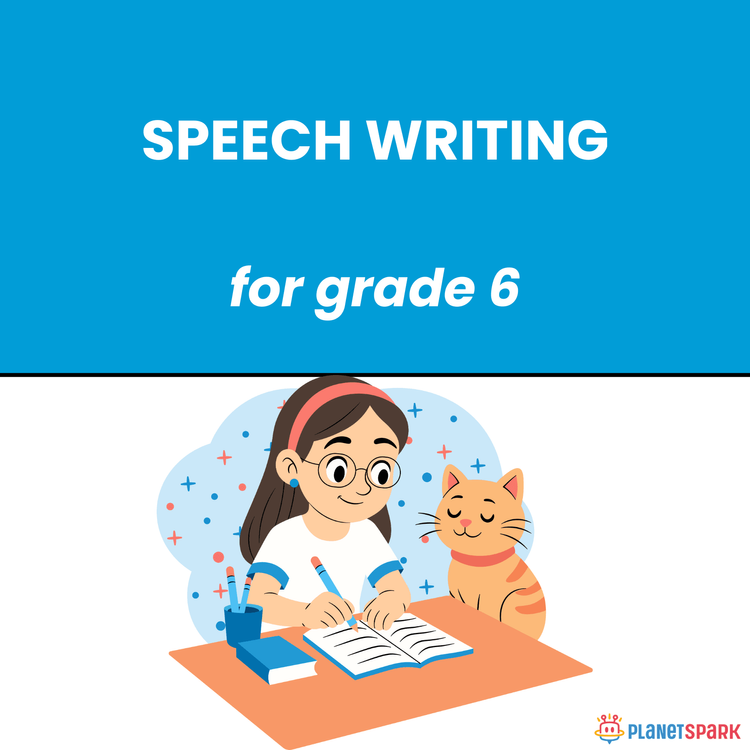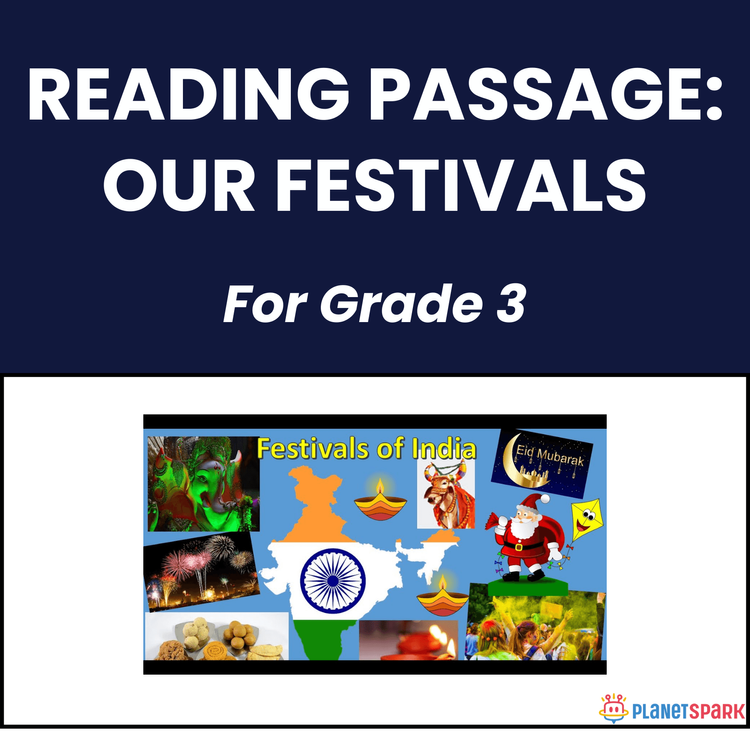Class 6 Reading Passage on Farmhouse Visit
EnglishClass 6Spoken EnglishFree DownloadPDF
Bhuvaneshwary VijayakumarVisit Profile
Dedicated and student centered educator with experience in designing engaging lessons and supporting learners of varying abilities. Committed to nurturing not just academic success but also curiosity, and personality development in every learner. My approach centres on creating meaningful and focussed lessons that help learners grow more confident and capable both inside and outside the classroom. Create an inclusive, positive learning environment that builds strong foundational skills and confidence.
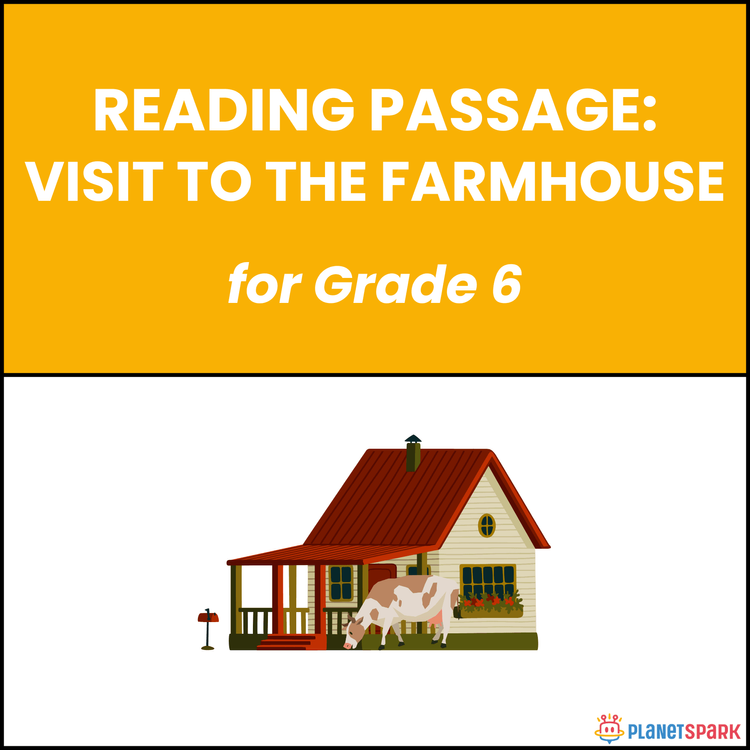

Class 6 Reading Passage on Farmhouse Visit
EnglishClass 6Spoken EnglishFree DownloadPDF
Bhuvaneshwary VijayakumarVisit Profile
Dedicated and student centered educator with experience in designing engaging lessons and supporting learners of varying abilities. Committed to nurturing not just academic success but also curiosity, and personality development in every learner. My approach centres on creating meaningful and focussed lessons that help learners grow more confident and capable both inside and outside the classroom. Create an inclusive, positive learning environment that builds strong foundational skills and confidence.
Visit to the Farmhouse: Reading Comprehension for Class 6
Last weekend, Tanvi and her classmates went on a trip to her uncle’s farmhouse on the city outskirts. The bus ride was cheerful with songs and chatter. When they reached, Tanvi saw wide green fields, tall coconut trees, and a pond where ducks were swimming. Her uncle showed them how crops like rice and vegetables grew in rows. They met a friendly farmer who let them feed the hens and milk a gentle cow. Tanvi was surprised to learn that organic vegetables were grown without using chemicals. After lunch under a shady mango tree, they walked to the barn and watched calves drinking milk. The air smelled of grass and fresh hay, so different from the city. A soft breeze made the sugarcane leaves rustle. Tanvi picked ripe guavas from a tree with permission and shared them with her friends. Later, they played hide-and-seek among the trees until the sun began to set. Before leaving, Tanvi thanked her uncle and the farmer for teaching them about nature’s hard work. On the way back, she thought about how much patience farmers showed every day. The visit taught her to respect people who grow our food and to waste nothing at home. It was a day full of learning, laughter, and the beauty of the countryside.
Why Reading Comprehension Matters in Grammar?
Reading comprehension enhances grammar skills by helping students understand how language works in context. For Class 6 learners, this worksheet is important because:
1. It introduces new vocabulary related to nature, farming, and the countryside.
2. It develops an understanding of descriptive language and sensory experiences.
3. It teaches valuable life lessons about respect, patience, and responsibility.
4. It strengthens critical thinking by linking the passage to real-life values.
What’s Inside This Worksheet?
This worksheet includes several exercises that test factual understanding and encourage deeper thinking:
🧠 Exercise 1 – Multiple Choice Questions
Students answer questions about the trip to the farmhouse, including where Tanvi went, what she did there, and what she learned.
✏️ Exercise 2 – Short Answer Questions
Students describe the sights Tanvi saw on the farm, the lessons she learned about farmers, and how she spent time with her classmates.
📋 Exercise 3 – Deep Thinking Questions
Students explore the values shown through Tanvi’s actions, the importance of respecting farmers’ work, and how the author describes rural life.
✅ Answer Key (For Parents & Educators)
Exercise 1 – Choose the Correct Option
1. Where did Tanvi and her friends go on the weekend?
- b. To her uncle’s farmhouse.
2. What did the farmer allow them to do?
- a. Feed hens and milk a cow.
3. What did Tanvi learn from the visit?
- d. That farming requires patience and care.
Exercise 2 – Short Answers
1. Tanvi saw ducks, crops, trees, and a barn.
2. She shared guavas and played with friends.
3. She learned that farming needs effort and patience
.
Exercise 3 – Extended Thinking
1. Tanvi shows gratitude, curiosity, and teamwork.
2. By contrasting quiet nature with busy city sounds.
3. Farmers provide food through hard work; we must value that.
4. “fresh” – having a pleasant natural smell.
This worksheet encourages children to respect the hard work of farmers and appreciate the beauty of nature.
Frequently Asked Questions
They connect students to nature, hard work, and rural life while strengthening descriptive comprehension.
They introduce words about animals, plants, and activities that expand students’ language for real-world topics.
It improves observation, comparison, and inference—key comprehension skills for middle school learners.
